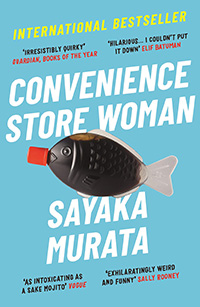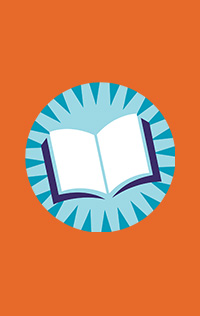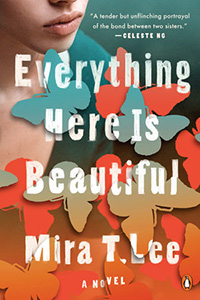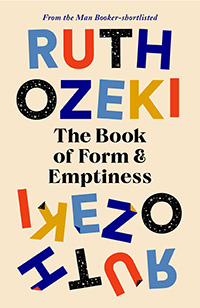Discover more book recommendations
Meet our Book Doctor... Ruth Ozeki, author of A Tale for the Time Being
In our Book Doctor feature, we welcome a guest to prescribe just the right read for any mood or occasion.
Ruth Ozeki, author of A Tale for the Time Being and The Book of Form and Emptiness, has joined us to prescribe some fantastic books and reading advice.
I'm trying to make my reading a bit more diverse and would love to read more translated fiction. I'm interested in some Japanese or Korean fiction, but just don't know where to start. Any good recommendations? – Vicki, age 41
Vicki, thanks for your great question. There are so many wonderful books in translation from Japan and Korea. Young women writers are taking the Japanese literary scene by storm, and three recent award-winning novels that I’ve fallen in love with are Convenience Store Woman by Sayaka Murata, Breasts and Eggs by Mieko Kawakami, and The Housekeeper and the Professor by Yoko Ogawa. All give powerfully different views of what it’s like to be a woman in Japan.
Haruki Murakami is one of the all-time great modern Japanese novelists with an international cult following, so if you like wonderfully weird and fantastical literature, he is unbeatable. I think my favourite might be Kafka on the Shore, or maybe The Wind-Up Bird Chronicle, or Hard-Boiled Wonderland and the End of the World.
Recently, I read beautiful novel called Tokyo Ueno Station by Yu Miri, a Korean author living in Japan. It's a quiet, powerful story, told from the point of view of a homeless ghost.
And finally, Korean novelist Han Kang is a phenomenon. Her brilliant novel, The Vegetarian, won the 2016 Man Booker International Prize, and The White Book was shortlisted for the same prize in 2018.

How do I best get over a book-hangover/the grief that follows finishing a really good book? – Iona, age 24
Hi, Iona. What a perfect way of describing this feeling; finishing a great book is like a hangover in so many ways. After a night of feverish reading, I'll often wake up dizzy, and dehydrated, and disoriented, too. I think the best way to push through this grief and discomfort is to put some of your thoughts and feelings down in writing. Perhaps you write a letter to one of your favourite characters from the book, thanking them or asking them questions; or maybe you just jot down notes to yourself, cataloguing some of the things you learned during your read, or what inspired you. Maybe you even start to write the sequel. In writing about reading, you'll find you can keep the book alive well after you've finished reading it.

Are there any books that deal with mental health problems, like depression, or anxiety? – Claire, age 26
Thanks so much for your question, Claire. I've struggled with depression and anxiety all my life, and I’m always looking for books that can give me insight into my struggles, and often I find myself writing these books, too.
The books I found helpful when I was younger were novels like The Bell Jar by Sylvia Plath, and I Never Promised You a Rose Garden by Joanne Greenberg, both of which are based on the authors' own mental health struggles. More recently, Everything Here is Beautiful by Mira T. Lee is a wonderful novel about two sisters, one who starts hearing voices, and the other who struggles care for her.
Matt Haig writes openly and compassionately about mental illness. The Midnight Library is a novel about a suicidal woman who finds a way forward through books in a magical library. Beautiful! And his Reasons to Stay Alive is a memoir about living with depression and anxiety disorder, which I keep by my bedside.
Most writers that I know struggle with anxiety and depression. I've found that writing novels about characters with problems like mine enables me to go on. Writing is a profoundly heart-healing practice, one I recommend to everyone.

I read all the time and still have hundreds of books on my reading list! How do you which book to read next? – Heather, age 31
It sometimes feels impossible to decide doesn't it? Even the joy of browsing in a bookstore or library can soon become overwhelming. For me, I like to alternate between fiction and non-fiction. I find that after I finish a good novel, my mind likes to linger in that fictional world for some time, and things tend to get muddled if I jump too quickly into another work of fiction. I also find that sometimes books choose me. Books are funny this way—sometimes they call out to me from a library shelf, or fall and land directly in my path. Sometimes they pop up on my social media feed due to some eerily intuitive algorithm that knows, somehow, that I’m in the mood for graphic novels. Sometimes certain titles or book cover images even infiltrate my dreams. I have many unread books on my bookshelves, and sometimes I close my eyes and run my fingers along the spines of the books, until one feels right. Random happenstance and serendipity are helpful; they take the pressure off me to decide, when I let the book choose me.

How can I stop feeling guilty about abandoning a book that just isn't 'grabbing' me? I feel life is too short and there's too many books to waste time on one that's no good. But part of me feels like I should persevere and finish every book I start. – Jo
Hi, Jo. I understand your guilt—I feel it, too!—but books are more resilient than we might think. They are, by nature, accustomed to being discarded, abandoned (temporarily or permanently), repurposed as footstools, of chewed upon by curious dogs. But remember, every book that is abandoned by one reader, will be beloved and cherished by another. It's true, life is short and there’s just not enough time to read every book, especially those that don’t move you. We as readers develop tastes and interests and passions, and if a certain book doesn't align with yours, I encourage you to trust yourself and move on to one that does. And you never know, because years later, you might find yourself reading that exact same abandoned book again, but with tremendous pleasure!


About The Book of Form and Emptiness by Ruth Ozeki
"When a book and a reader are meant for each other, both of them know it."
One year after the death of his beloved musician father, thirteen-year-old Benny Oh begins to hear voices. The voices belong to the things in his house – a sneaker, a broken Christmas ornament, a piece of wilted lettuce. Although Benny doesn’t understand what these things are saying, he can sense their emotional tone; some are pleasant, a gentle hum or coo, but others are snide, angry and full of pain. When his mother develops a hoarding problem, the voices grow more clamorous.
At first Benny tries to ignore them, but soon the voices follow him outside the house, onto the street and at school, driving him at last to seek refuge in the silence of a large public library, where objects are well-behaved and know to speak in whispers. There, he falls in love with a mesmerising street artist with a smug pet ferret, who uses the library as her performance space. He meets a homeless philosopher-poet, who encourages him to ask important questions and find his own voice amongst the many.
And he meets his very own Book – a talking thing – who narrates Benny’s life and teaches him to listen to the things that truly matter.
The Book of Form and Emptiness blends unforgettable characters, riveting plot and vibrant engagement with everything from jazz to climate change to our attachment to material possessions. This is classic Ruth Ozeki – bold, humane and heartbreaking.